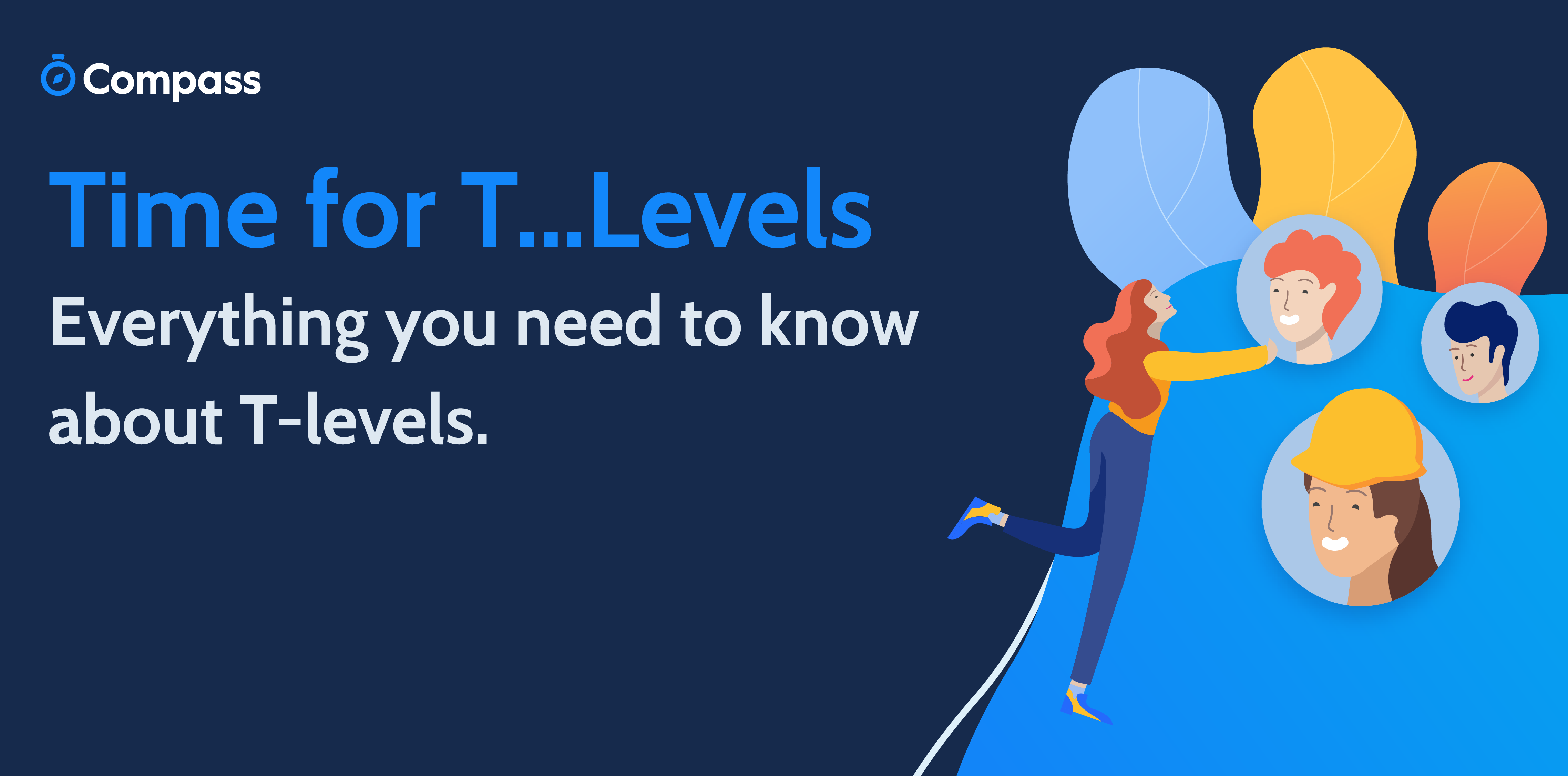September 2020 saw the introduction of T-Levels in selected colleges and other Post-16 providers. The gradual rollout has been affected by the pandemic, but T-Levels are now on track to become a technical alternative to A-Levels.
Why T-Levels?
Quite simply, we have a skills shortage! More than 250 leading businesses and employers, such as Fujitsu, GlaxoSmithKline and Skanska, spanning a range of industries, have been involved in designing T-Levels to plug the gaps.
T-Levels focus on vocational skills, and offer students a mixture of classroom learning and on-the-job experience, to support progression into skilled employment, an apprenticeship or further related study.
Students study one qualification, which is equivalent in size to 3 A-Levels, over a two-year period. They begin with core theory, concepts and skills relating to an industry or skill area and can then choose one or more occupational specialism(s).
What are the benefits for students?
T-Levels suit students who know the industry or area of work they want to pursue a career in, and like the idea of a predominantly learning-environment-based course, but with a strong practical emphasis and time in the workplace.
Students will spend 80% of their chosen course in their learning environment, gaining the skills that employers need. The other 20% (approximately 45 days) will be spent in a relevant industry placement, putting those skills into action and gaining valuable experience in the workplace.
T-Levels differ from A-Levels which are academic and entirely classroom-based and apprenticeships which are predominantly work-based and focus more intensively on a particular role. Whilst based on the same standards as apprenticeships – which allow students to earn and learn from age 16 – T-Levels can be a stepping stone for those who are not ready for the workplace.
T-Level students should continue to work towards passes in the Basics (English and maths GCSEs grade 4 or Level 2 in Functional Skills), but do not need to pass in order to complete their T-Levels.
What’s on offer and where?
Students can currently choose from 10 T-Level courses. By September 2023, 23 T-Levels will be available, covering 11 skill areas:
- Agriculture, Environmental and Animal Care
- Business and Administration
- Catering and Hospitality
- Construction
- Creative and Design
- Digital and IT
- Education and Childcare
- Engineering and Manufacturing
- Hair and Beauty
- Health and Science
- Legal, Finance and Accounting
Students might find providers a little limited at the moment, and it will be interesting to see how a student’s geographical location may affect both study and placements.
Upon passing a T-Level, students get a nationally recognised certificate showing the overall grade achieved – pass, merit, distinction or high distinction. Details of what was learned during the course will also be provided, aiding a student’s progression into skilled employment or a higher apprenticeship.
If a student is not quite ready for a T-Level, the T-Level Transition Programme is a 1-year post-GCSE course designed to prepare them for their chosen route. It will provide them with relevant knowledge, and both practical and study skills to excel in their subject.
How do businesses benefit?
The involvement of employers should help deliver the skills organisations need, as the current range of vocational education courses can be confusing and doesn’t always meet their needs. T-Levels can help businesses develop future talent and capitalise on new ideas and a fresh perspective.
Employers can receive help finding providers to work with and the right students. This academic year, an incentive fund was available to help employers host placements.
Some employers choose to remunerate students during their placement period, typically National Minimum Wage. There is no legal requirement or expectation upon employers though, just like there is no obligation to offer the student a job at the end of the placement.
But what about the providers?
It’s the government’s intention that T-Levels simplify vocational education, and provide a clear and high-quality, technical alternative to the current range of Post-16 education and training options. Therefore, significant additional funding is being made available for the successful introduction and delivery of T-Levels:
- Providers will be funded for additional hours involved and for organising industry placements, as T-Levels involve more hours than most current technical qualifications at Level 3.
- Funding for specialist equipment is available and non-independent training providers can bid for funding to refurbish existing facilities or build new buildings.
- Free professional development is also available to all providers delivering and planning to deliver T-Levels.
Schools and colleges can set their own entry requirements. Like A-Levels, if a student start a course before the age of 19, there are no tuition fees.
The future of Post-16
The government is reviewing qualifications at Level 3 and below to ensure that every single qualification approved for public funding is high quality, has a clear purpose, and supports progression to positive outcomes.
To make way for T-Levels we will see the demise of a high number of Level 3 vocational qualifications. On 11th May a provisional list of 165 qualifications – some very popular – was published. They will have 16 to 19 funding withdrawn for new starts from 1 August 2024. Awarding organisations have until 8th July 2022 to appeal.
Obviously, we’ll have to wait a while to see the impact. We will also have to see how the reliance on placements may be affected by the long-lasting effects of the pandemic, Brexit, and the energy crisis. The impact upon providers and being able to deliver these qualifications at a time when the teaching profession has been hit hard should not be underestimated either.





